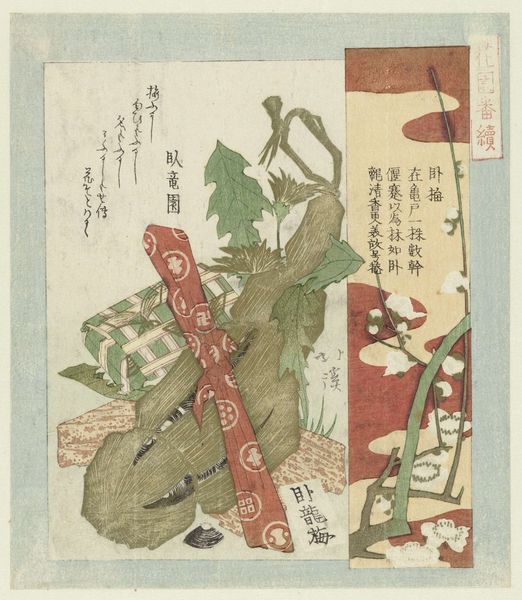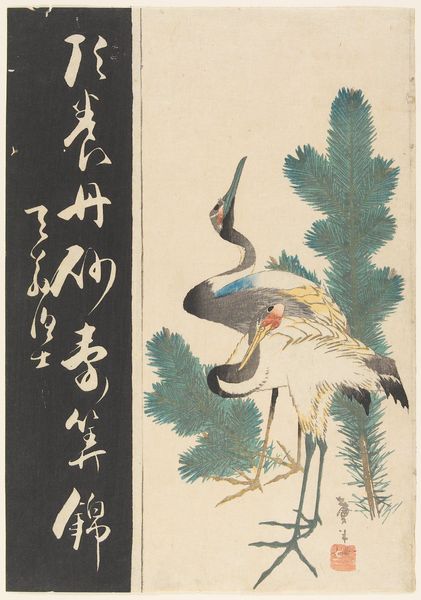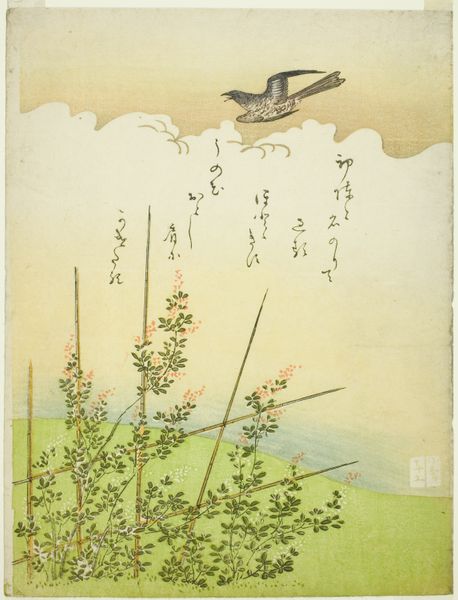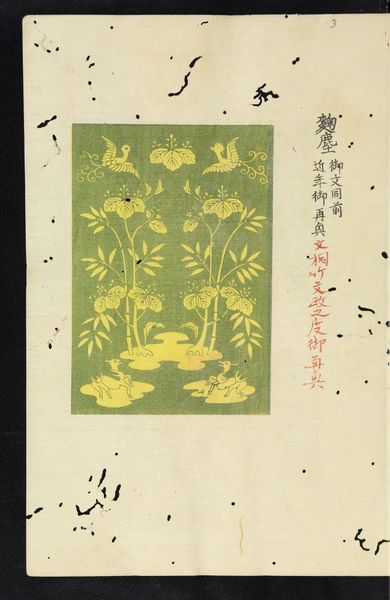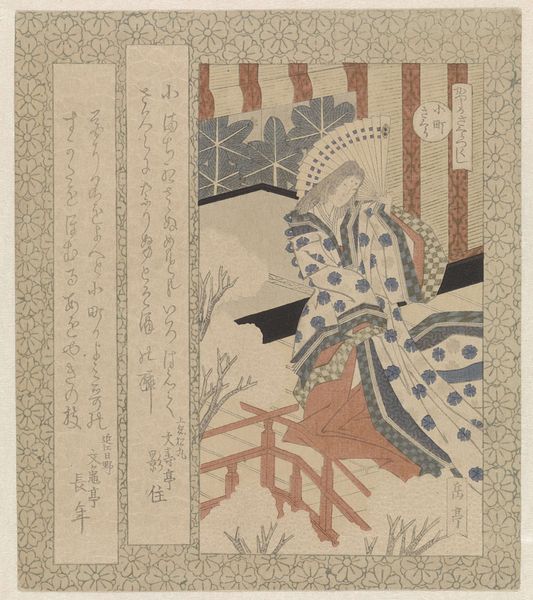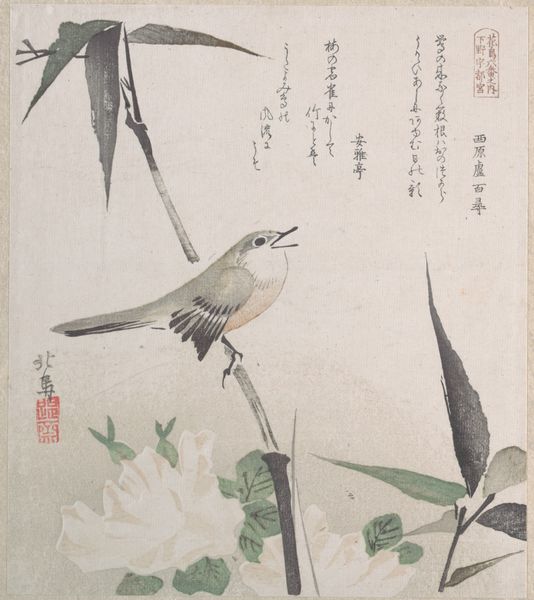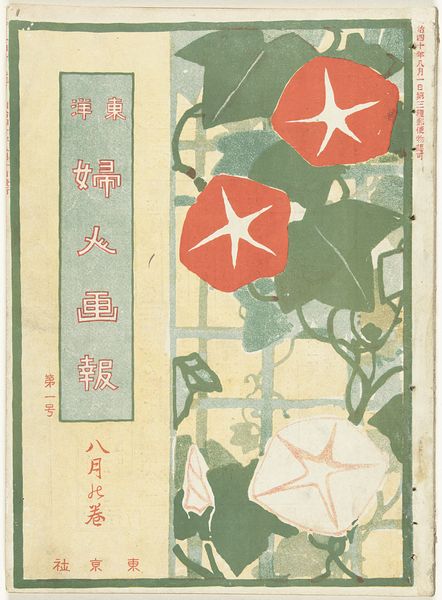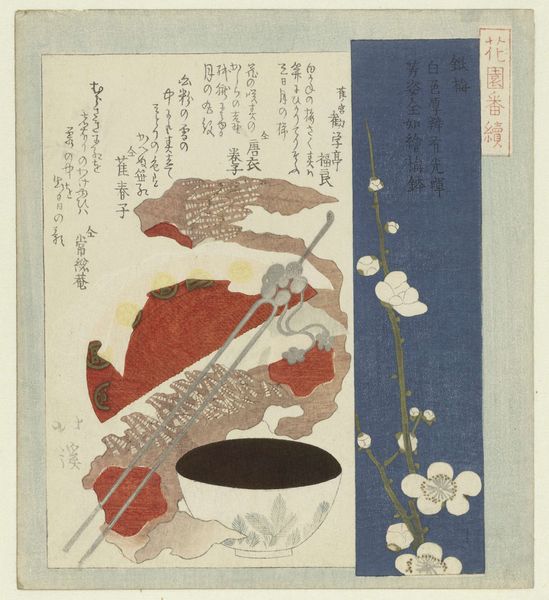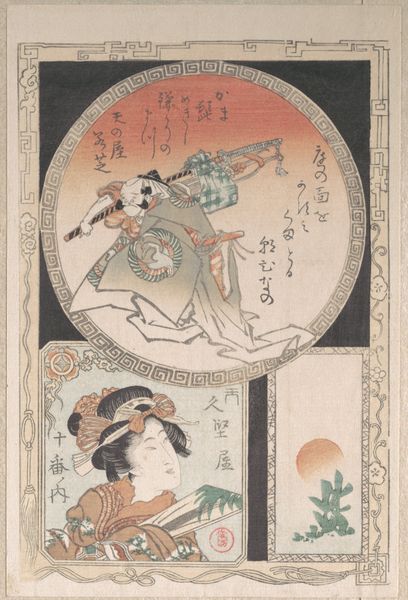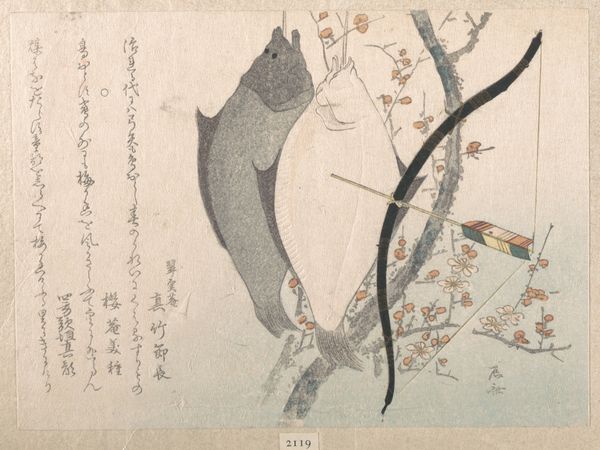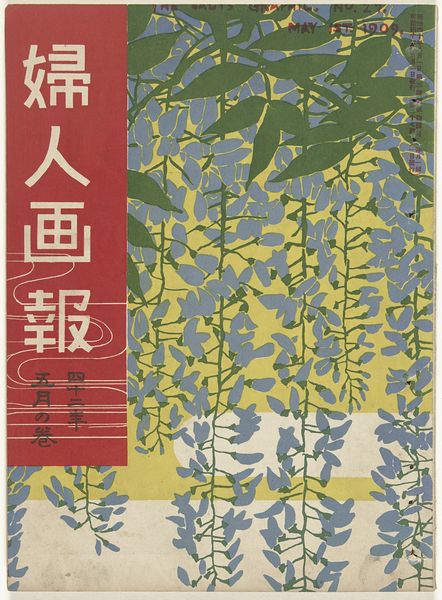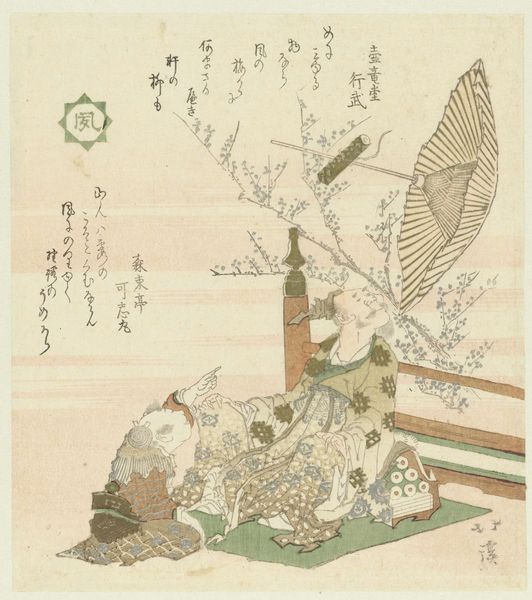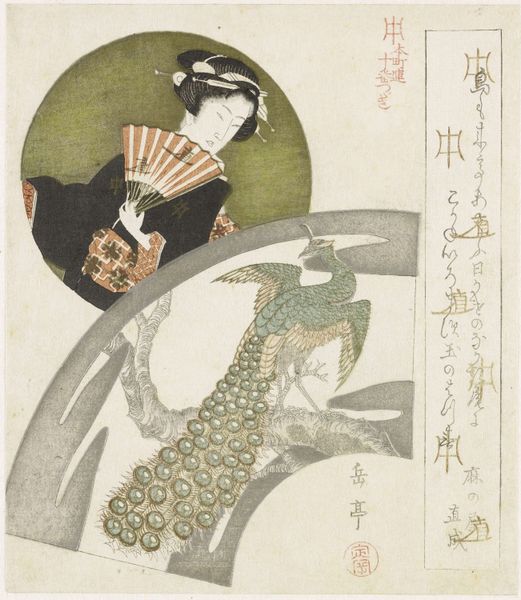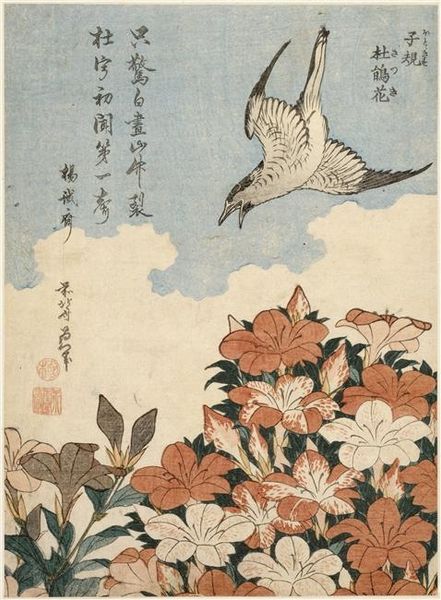
# print
#
asian-art
#
ceramic
#
earthenware
#
watercolour illustration
Dimensions: height 260 mm, width 188 mm, height 375 mm, width 259 mm
Copyright: Rijks Museum: Open Domain
Editor: Here we have Kitano Tsunetomi’s "Het nieuwe huishouden" from 1916. It's a print with watercolor elements. What strikes me is the use of seemingly simple materials to depict something so elegant like the white peacock. What do you make of it? Curator: The key here is understanding printmaking's function. It's reproductive technology. How does the artist choose to represent a domestic scene through this mass medium? What kind of 'new household' is being proposed, and to whom, by making it reproducible? Notice the ceramic designs; are they mass-produced, readily available goods indicative of a changing market and accessibility of design? Editor: That’s interesting. I hadn’t thought about it in terms of consumerism. So, the print medium isn't just a method; it’s also a message about availability? Curator: Precisely! Think about the implications. Prior to the wide availability of prints, artwork was the provenance of the upper classes. Suddenly, carefully arranged colours and geometric forms – decorative objects such as earthenware displayed as background decor - are available on the art market and can be reproduced many times over at a fraction of the cost. How does this disrupt existing power structures? What shifts in taste does it encourage? Editor: I see, it is interesting to think about the connection between japonisme, printmaking techniques and new economics related to distribution and taste... Thank you. Curator: It's crucial to view art as inherently linked to its modes of production and consumption. Art becomes embedded with societal values through materiality and labor. It reframes how we engage with visual art.
Comments
No comments
Be the first to comment and join the conversation on the ultimate creative platform.
